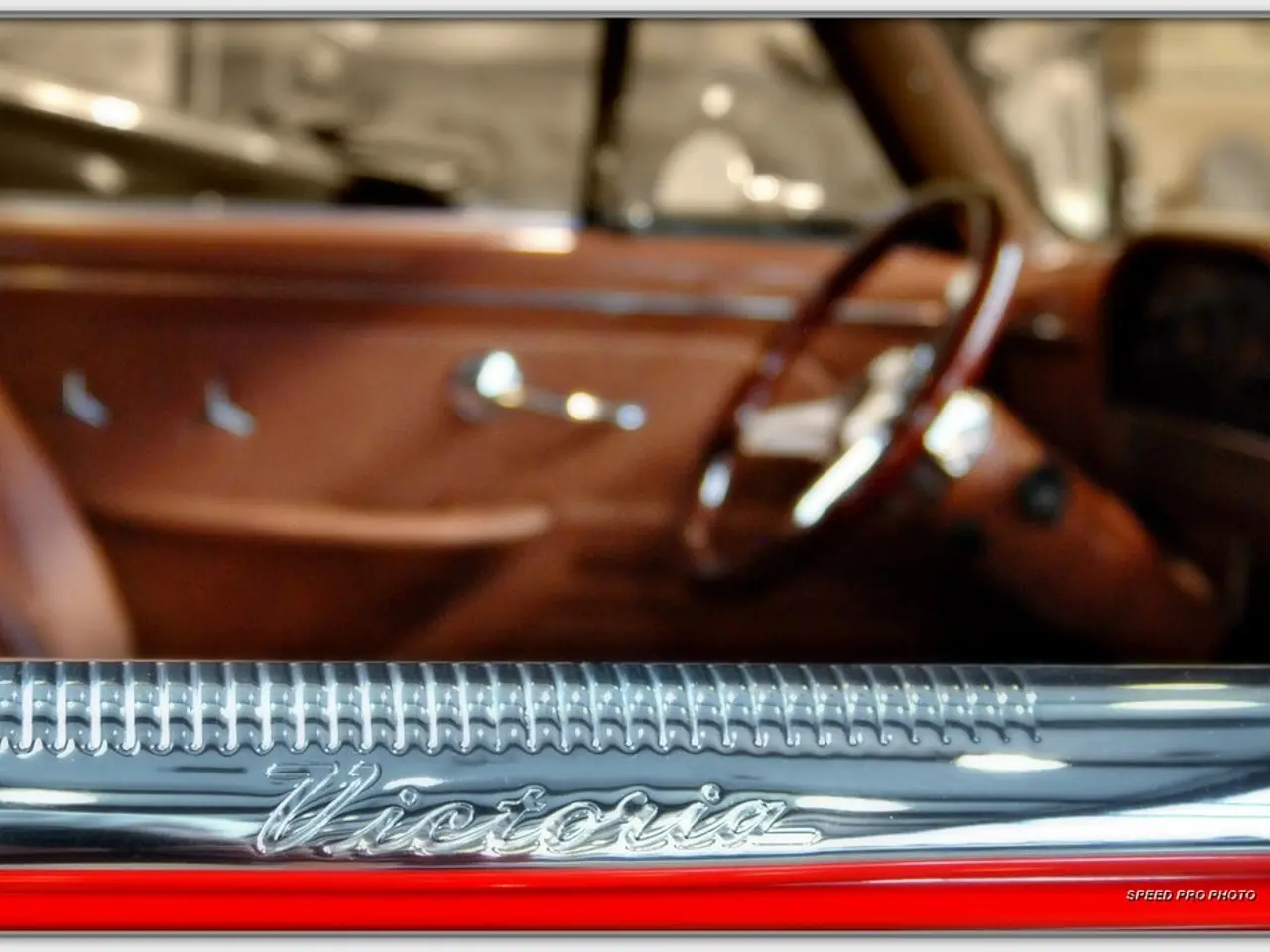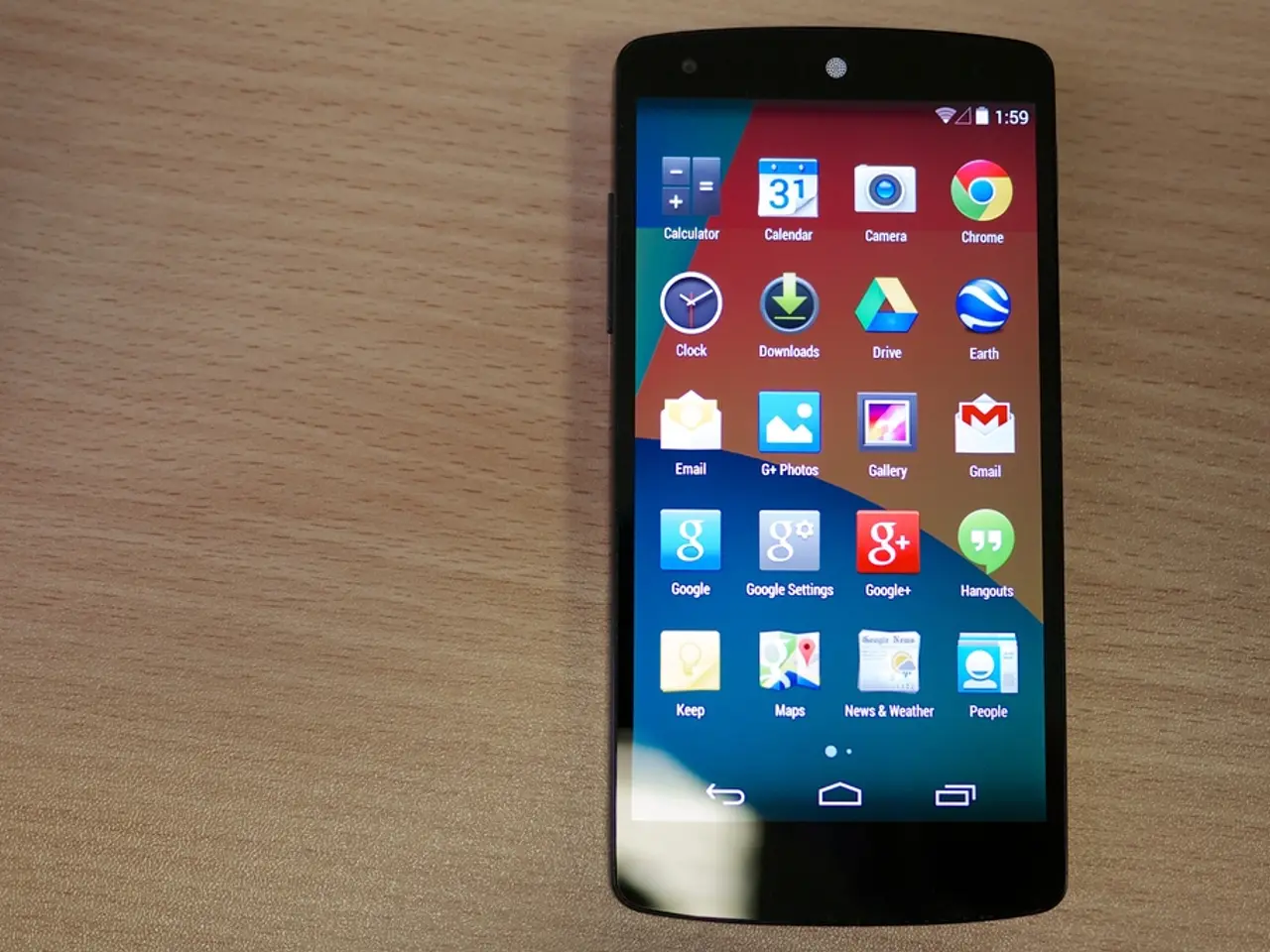Re-introduction of Li Auto's i8 model following initial subpar market reception
The Chinese automotive industry witnessed a significant event on July 29, 2025, as Li Auto officially relaunched its first all-electric six-seat family SUV, the Li i8. Deliveries of the vehicle were initially set for August 20, 2025 [1]. However, the launch was met with a 15.3% decline in July deliveries for Li Auto, partly due to a sales system upgrade and the introduction of the Li i8 [2].
Investor reaction to the Li i8 launch was mixed, with Li Auto's Hong Kong shares dropping over 10%, reflecting skepticism about the vehicle's premium pricing at RMB 321,800 (~$44,850) [3]. This pricing places the Li i8 above comparable competitors like Nio’s L90 SUV, sparking concerns over its competitiveness in a fiercely contested Chinese EV market dominated by established players such as BYD and Tesla.
Operationally, Li Auto continues to expand its retail and service network, with 535 stores and 3,028 fast-charging stations across China [1]. However, the company faces challenges, including regulatory pressure to avoid price wars, high R&D costs (~RMB 2.5 billion in Q1 2025), and delayed full electrification targets now set for 2027 rather than earlier [2].
The Li i8 comes equipped with a dual-motor four-wheel drive system and supports 5C supercharging, boasting a CLTC range of 720 kilometers [4]. Initially, the Li i8 was launched with three variants: Pro, Max, and Ultra. However, Li Auto discontinued the Pro and Max variants due to their complexity and the fact that more than 98 percent of consumers chose the Max and Ultra variants [5].
In a move to cater to consumer preferences, Li Auto has introduced paid options that allow consumers to obtain a vehicle with the same configuration as the Ultra variant for a reduced total cost of RMB 349,800 [5]. The Max variant remains, with its price reduced to RMB 339,800 ($47,310) [5].
Meanwhile, Li Auto's rival, Onvo, launched its L90 flagship SUV on July 31 with a starting price of RMB 265,800 [6]. The price of the Max variant has been decreased by RMB 10,000, or 2.86 percent, from the previous price [6]. The Li i8 and Onvo L90 are now being widely compared on social media, further intensifying the competition in the Chinese EV market.
As Li Auto moves forward, its ability to innovate and compete effectively in the EV segment will be crucial in the coming years. The company's strategic shift towards all-electric vehicles, despite the current market challenges, signals a promising future for the company in the rapidly evolving world of electric vehicles.
References:
[1] Li Auto. (2025). Li i8 Official Launch. Retrieved from https://www.li-auto.com/news/pressreleases/detail/15333396
[2] Li Auto. (2025). Q1 2025 Earnings Report. Retrieved from https://www.li-auto.com/investor/financials/quarterly-results/2025q1
[3] Yahoo Finance. (2025). Li Auto Stock Price Today. Retrieved from https://finance.yahoo.com/quote/LI?p=LI
[4] Li Auto. (2025). Li i8 Specifications. Retrieved from https://www.li-auto.com/products/li-i8/specifications
[5] Li Auto. (2025). Li i8 Variants and Pricing. Retrieved from https://www.li-auto.com/products/li-i8/variants-and-pricing
[6] Onvo. (2025). Onvo L90 Launch. Retrieved from https://www.onvo.com/news/pressreleases/detail/15333402
- Despite the lower-than-expected sales in July for Li Auto, they are expanding their retail and service network, with 535 stores and 3,028 fast-charging stations across China.
- The Li i8, Li Auto's first all-electric six-seat family SUV, comes equipped with a dual-motor four-wheel drive system, supports 5C supercharging, and boasts a CLTC range of 720 kilometers.
- Investor reaction to the Li i8 launch was mixed, with Li Auto's Hong Kong shares dropping over 10%, reflecting skepticism about the vehicle's premium pricing at RMB 321,800.
- Li Auto's rival, Onvo, launched its L90 flagship SUV on July 31 with a starting price lower than the Li i8, adding to the competition in the Chinese EV market.
- In an effort to cater to consumer preferences, Li Auto has introduced paid options that allow consumers to obtain a vehicle with the same configuration as the Ultra variant for a reduced total cost.
- The Chinese EV market is fiercely contested, with established players such as BYD and Tesla dominating, and newcomers like Li Auto and Onvo having to contend with regulatory pressure, high R&D costs, and delayed full electrification targets.




